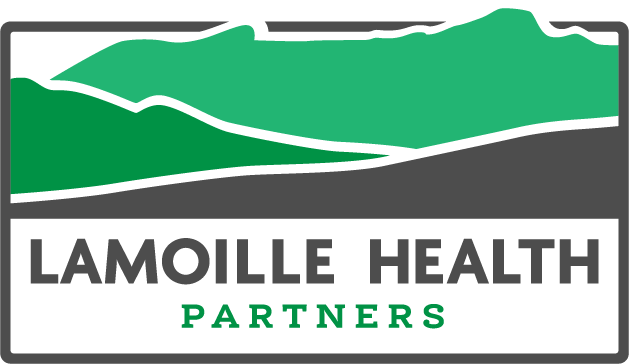By Melissa Volansky, MD
Summertime is all about picnics, parades, and fun in the sun. As you enjoy the warm days, take advantage of the leisurely pace to get caught up on your family’s regular health screenings.
If you have kids, summer is a great time to make sure they are up to date on all their vaccines and physicals before the new school year begins. It also makes sense for seniors to plan their appointments when the weather allows for easier driving conditions.
Your Lamoille Health Partners care team will help you decide which prevention services are best for you and your family. Here are a few preventive health measures you may be missing.
Child wellness/sports physical visit
The American Academy of Pediatrics recommends that children ages 3 to 21 receive physical exams every year. Children’s bodies grow and change quickly, and preventive or wellness visits help ensure your children are reaching developmental milestones and are up to date on immunizations.
As you add back-to-school haircuts and school-supply shopping to the calendar, don’t forget to schedule your child’s sports physical too! Many youth sports teams and summer camps require records of a recent physical exam before a child can participate in activities. You want to be sure they meet the requirements of participation.
Skin cancer screening
Skin cancer is the most common cancer in the United States; 1 in 5 Americans will develop skin cancer in their lifetime, according to the American Academy of Dermatology.
Most skin cancers are caused by too much exposure to ultraviolet (UV) rays – the rays that come from the sun. A lot of UV exposure over our lifetimes occurs before age 18, so make sure children are protected! Staying in the shade is the best way to limit your UV exposure. However, if you are going to be in the sun, the American Cancer Society says:
- Slip on a shirt.
- Slop on sunscreen.
- Slap on a hat.
- Wrap on sunglasses.
In addition, the organization recommends that people between the ages of 20 and 40 get a skin cancer screening every three years. This recommendation jumps to once annually for people over age 40.
A skin cancer screening can be done by your primary care practitioner in about 10 minutes. Your practitioner will ask if you have any moles that concern you. Then, he or she will examine your entire body — from your face, chest, arms, back, and legs to less-visible places like your scalp, between your toes, and the soles of your feet. If there is anything of concern, your care provider will direct you for further testing. This service should be part of everyone’s prevention plan.
Breast cancer screening
Breast cancer is the second most common cancer among women in the United States, according to the Centers for Disease Control and Prevention. Screening mammograms (low-dose x-rays of the breast) are done to detect early signs of cancer before any symptoms develop. The American Cancer Society recommends women at normal risk be screened with mammograms annually from age 45-55, then every other year until age 75. Some practitioners follow different guidelines, and women at higher risk may need to be screened more often.
Colorectal Cancer Screening
The U.S. Preventative Services Task Force recommends that adults aged 45-75 be screened for colorectal cancer. Colonoscopy remains the gold standard, but there are some home-based stool tests that perform nearly as well. Talk to your healthcare team about which method would be best for you.
Heart health screening
Heart disease is the leading cause of death in the United States. And the most common type of heart disease is coronary artery disease where the blood vessels feeding the heart become clogged. Vascular disease can also affect the brain, causing strokes, and impair the kidneys, leading to kidney disease.
Risk factors for vascular disease include high blood pressure, high blood cholesterol, high blood sugar, being overweight or obese, and certain habits like smoking and alcohol use.
The American Heart Association recommends the following heart health screenings for all patients:
Blood pressure: Blood pressure is one of the most important screenings because high blood pressure usually has no symptoms so it cannot be detected without being measured. High blood pressure greatly increases your risk of heart disease and stroke.
If your blood pressure is below 120/80 mm Hg, be sure to get it checked at least once every two years, starting at age 20. If your blood pressure is higher, your Lamoille Health practitioner may want to check it more often.
Blood cholesterol: Your practitioner may recommend that you have a fasting lipid profile taken every three to five years, starting at age 20. This is a blood test that measures total cholesterol, LDL (bad) cholesterol, HDL (good) cholesterol, and triglycerides.
After age 40, your practitioner will use an equation to calculate your 10-year estimated risk of a major cardiovascular disease event such as a heart attack or stroke. If you are at increased risk for heart attack or stroke, you may need to be tested more frequently.
Blood glucose: High blood glucose or “blood sugar” levels put you at greater risk of developing insulin resistance, prediabetes, and type 2 diabetes. Untreated diabetes can lead to many serious medical problems including heart disease and stroke. If you are overweight and you have at least one additional cardiovascular risk factor, your practitioner may recommend a blood glucose test.
In addition, if you have certain risk factors or heart disease in your family history, your Lamoille Health practitioner might encourage you to start these screenings at a younger age than usual.
As you make plans to travel, go hiking, or enjoy Wednesday Night Live, be sure to schedule your important health screenings too. Our care team is here to help you prevent illness and stay healthy all year long.

